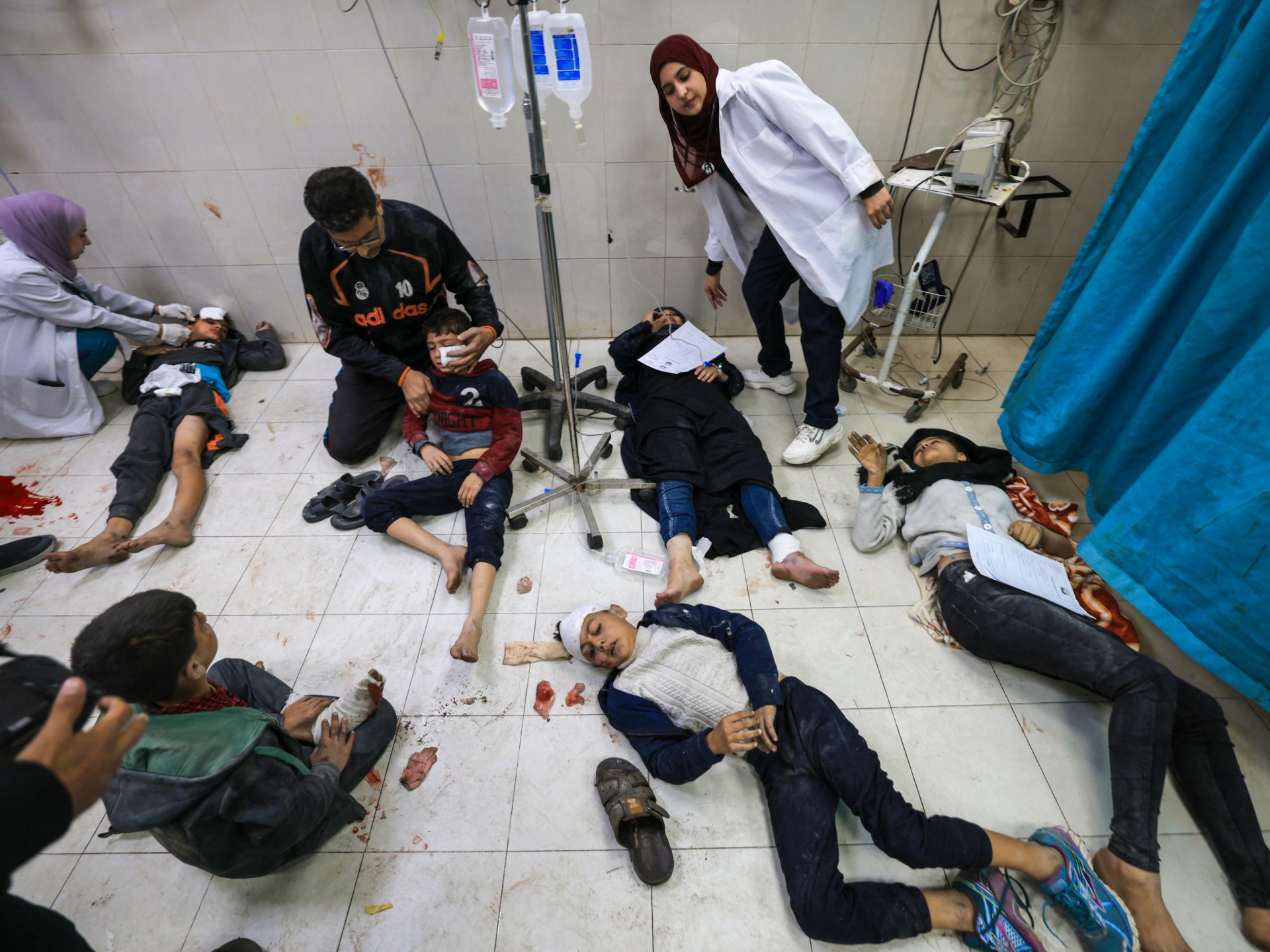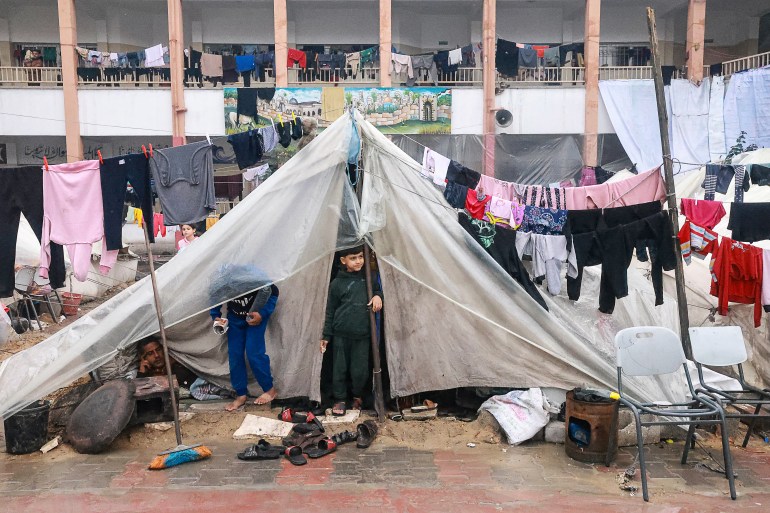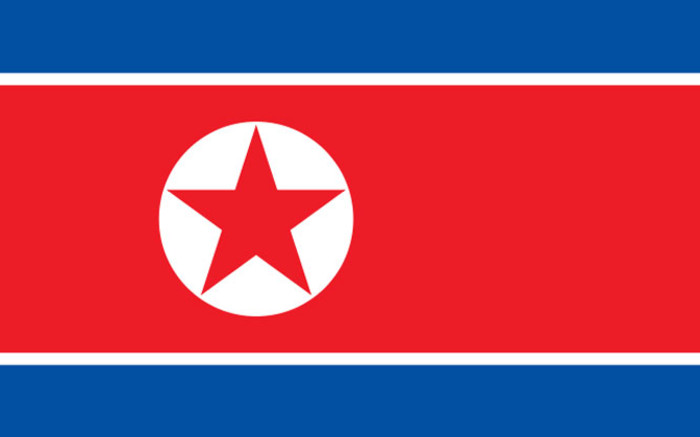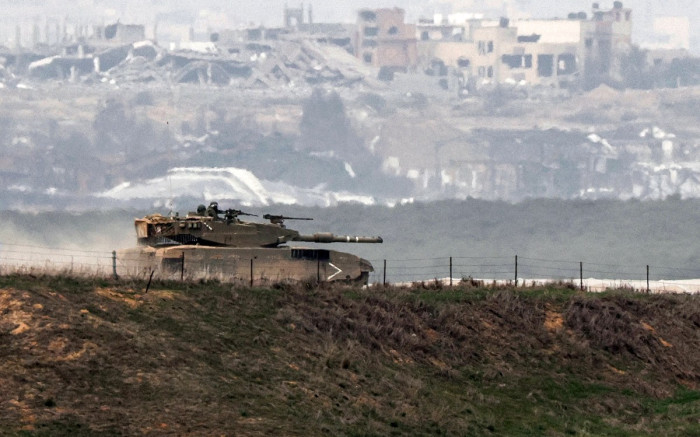
From all Doctors and medical staff Dr. Osaid Alser estimates that he personally knew half of the people killed in Gaza this year.
Alser, a researcher and resident at Texas Tech University Health Sciences Center in the United States, grew up in Gaza City, the largest city in Palestine. There he began his medical career, first as a student and eventually as a teacher himself.
But since the war in Gaza began on October 7th, Alser has had to watch as Israeli bombs rain down on his hometown and military forces storm medical centers.
The result was the near collapse of Gaza’s health system. Only 11 hospitals – a third of the enclave’s hospitals – remain operational, and supplies of fuel and medical supplies are dwindling.
Faced with the death and destruction in Gaza, Alser felt compelled to speak out. “We have a duty to say: stop the war and have a ceasefire now,” he told Al Jazeera.
For him, calling for a ceasefire was a given ethical imperativenot a political statement.
But not all healthcare providers agree. Many feel compelled not to speak out about conflicts because they are part of a tradition that views medical professionals as above the fray.
However, the intensity of the war – and its particular damage to Gaza’s health system – has led some to ask: When do medical professionals have a responsibility to speak out?
Debate about “medical neutrality”
The debate erupted last month at a meeting of the American Medical Association (AMA), the largest professional organization for physicians in the United States.
The House of Delegates, which sets the organization’s policy, declined to debate a resolution that would have called for a ceasefire in Gaza.
According to the publication MedPage Today, some delegates felt that the resolution would force them to decide whether the conflict in Gaza was a “just war” or an “unjust war.” That wasn’t their role, they said.
The concept of so-called “medical neutrality” comes from the history of civilian involvement in battlefield medical care, with some volunteer nurses caring for the sick and wounded on both sides of a conflict.
Since then, international law has evolved to protect the role of health workers in warfare. Intentional attacks on medical personnel therefore constitute a war crime.
But “medical neutrality” does not necessarily mean impartiality. And some medical ethicists point out that the scale of the Gaza conflict raises serious questions.
“A lot of people are worried that this won’t be business as usual,” Harold Braswell, associate professor of health ethics at Saint Louis University, told Al Jazeera.
“Israel dropped an enormous number of bombs on a heavily populated area in a very, very short period of time. And that has created a very, very urgent situation.”
A unique circumstance
2.3 million people live in Gaza, a narrow strip just 11 km wide and 40 km long. Palestinian health authorities estimate that at least 19,453 people were killed, two-thirds of them women and children.
Another 1.9 million were displaced and tens of thousands lived on the streets of Rafah after Israel ordered civilians to flee south.
Humanitarian organizations have warned that medical workers will be killed when bombs fall on hospitals and ambulance convoys.
Alser, the doctor in Texas, has taken it upon himself to outline the extent of the impact. He and his brother, also a doctor, launched an initiative last month to count the number of health care workers killed.
So far they have documented 278 deaths since the start of the war. This includes 104 doctors, 87 nurses and 87 other people working in various medical roles.
“This includes many of my friends, my mentors and even my own medical students that I taught in 2017 who later became doctors and were killed,” Alser said.
Update 12/6/2023: In the last 60 days alone, the IOF has murdered 278 healthcare workers and kidnapped 41.#NotATarget #Palestine #Gaza #Gaza_Genocide #WarCrimes #ceasefireNOW #WestBank #Freedom #freePalestine #Palestine_Genocide #Gaza_Holocaust pic.twitter.com/kykaAaK6SX
— Healthcare Workers Watch – Palestine (@HCWWatch) December 7, 2023
“We have of course documented the names because they are not just numbers, and we publish their stories from people we know and trust locally.”
In addition, Israel has detained more than 40 health workers, including Dr. Muhammad Abu Salmiya – the director of Gaza’s largest hospital, al-Shifa – and Alser’s former student, Dr. Saleh Eleiva. The rising numbers left Alser no choice but to speak out.
“I just felt like we definitely needed to talk about it,” he said. “So that’s really the motivation: seeing our colleagues, friends, family members being killed – doctors, professionals who just work in medicine [and] They go home after working many, many hours and get killed.”
More and more voices are calling for a ceasefire
Alser is not alone. The American Public Health Association (APHA), the largest professional association for public health workers in the United States, called for an immediate ceasefire last month following pressure from its members.
Unions and healthcare advocacy groups have also called for a ceasefire. And more than 100 faculty members in schools of public health and medicine signed a letter this month calling on the U.S. government to support a ceasefire.
That’s what US President Joe Biden has done so far avoided pushing called for a ceasefire and cited Israel’s right to “defend” itself after the Hamas attack on October 7.
But there is disagreement among medical professionals about how much pressure should be brought to bear on Israel and whether its war actions have reached a threshold that requires a unified ethical stance.
Much of this disagreement centered on whether the attacks on health centers in Gaza constituted war crimes.
In a widely circulated opinion piece published in the Journal of the American Medical Association, Dr. Matthew Wynia that health professionals indeed have a responsibility to speak out about war and denounce all crimes committed under international humanitarian law.
But he sees the matter as far from being resolved, he quotes Israel’s claims that Hamas militants are using Gaza’s medical facilities “for offensive purposes, which in certain circumstances can legalize an attack on them.”
However, even in these cases there are limits to which violence can be justified, said Wynia.
“For example, if a facility is used to hide military equipment and personnel, any planned attack on it must still ‘minimize’ potential harm to civilians, and the military value of the attack must be proportionate to the potential civilian harm it may cause “could be cause,” Wynia wrote.
In an email to Al Jazeera, Wynia said he considered himself a fundamental pacifist and would personally support a ceasefire.
However, he added: “If we do not assume that all doctors have an ethical obligation to be pacifists, then I do not think we can say that calling for a ceasefire in this war is an ethical obligation for all doctors. “
“And to be consistent, this would mean also calling for a ceasefire in Ukraine and in all other wars,” he said.
Article triggers backlash
Wynia’s opinion piece sparked a backlash in the medical community. Some readers said she relied too much on Israel’s narrative.
Alser was among them. He and two colleagues – Canadian-Palestinian doctor Tarek Loubani and Norwegian doctor Mads Gilbert – wrote in a response that Wynia’s article lacked ethical clarity.
The article “clouded many of us’s moral intuition that attacks on hospitals, infrastructure and health workers are wrong,” they wrote.
All three doctors had previously worked in Gaza. They said they had “never encountered militants operating out of a hospital or restricting access to certain hospital areas.”
The Israeli military, for its part has published Videos of weapons allegedly found in medical centers and media tours of tunnels under Al-Shifa Hospital. No independent investigation was conducted.
Israeli doctor Zohar Lederman also said that there should be no ethical ambiguity when it comes to the Israeli military’s siege of hospitals in Gaza.
“One of the most advanced militaries in the world should not be murdering hundreds of vulnerable patients, including dialysis patients and newborns in incubators with nowhere else to go,” he wrote in his own response.
Wynia has since responded to his critics with another, shorter article, saying that medical professionals should condemn “both the illegal use of health facilities and attacks on them” and the war crimes committed by both sides.
He also stressed that there are still differing opinions “about the ethics of Israel’s approach to this war.”
“Indeed, I can confirm that this is the case, and Israel’s defenders and critics alike are convinced that they are morally superior,” he said.
Time to “say more”
For Alser, the debate further underscores the need for Palestinian perspectives in discussions about the war, regardless of any professional repercussions he might face.
The 31-year-old doctor remained on call as the fighting began, observing the war in his homeland late at night or early in the morning.
In the weeks since the fighting began, his mother, five siblings, nieces and nephews have been displaced six times. They also stayed briefly in al-Shifa hospital before fleeing to Khan Younis and finally Rafah.

They currently live in a tent. Alser explained that they are facing malnutrition amid the ongoing Israeli siege and food shortages.
“It was time for me to speak out and say more – to stand up for my family and to call for the protection of my friends and my people,” he said. “Instead of just sitting at home and crying and doing nothing, I shifted my energy more towards doing something good.”
“We are advocates,” he added, “and advocacy is a very important part of medicine.”






Recent Comments